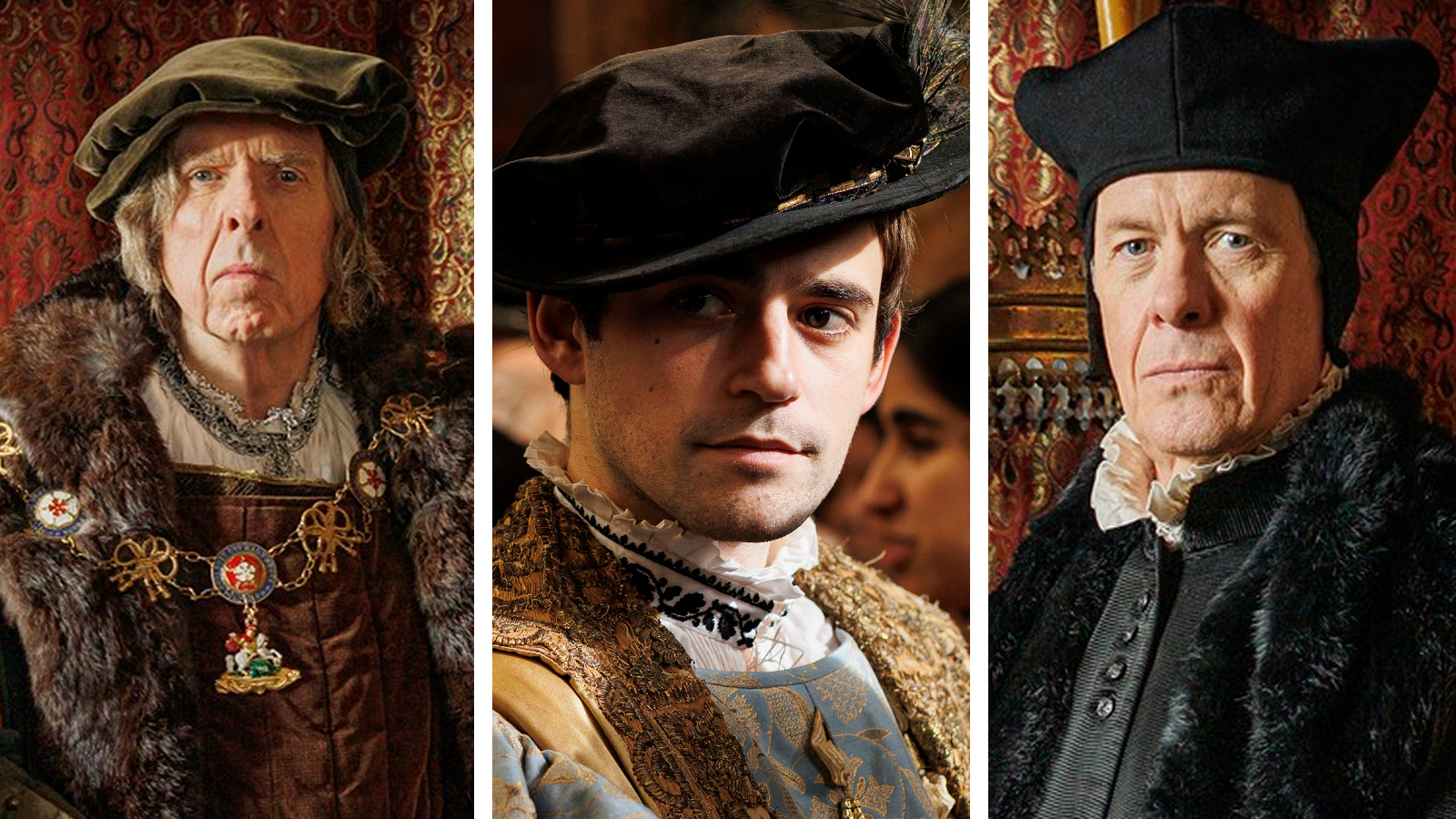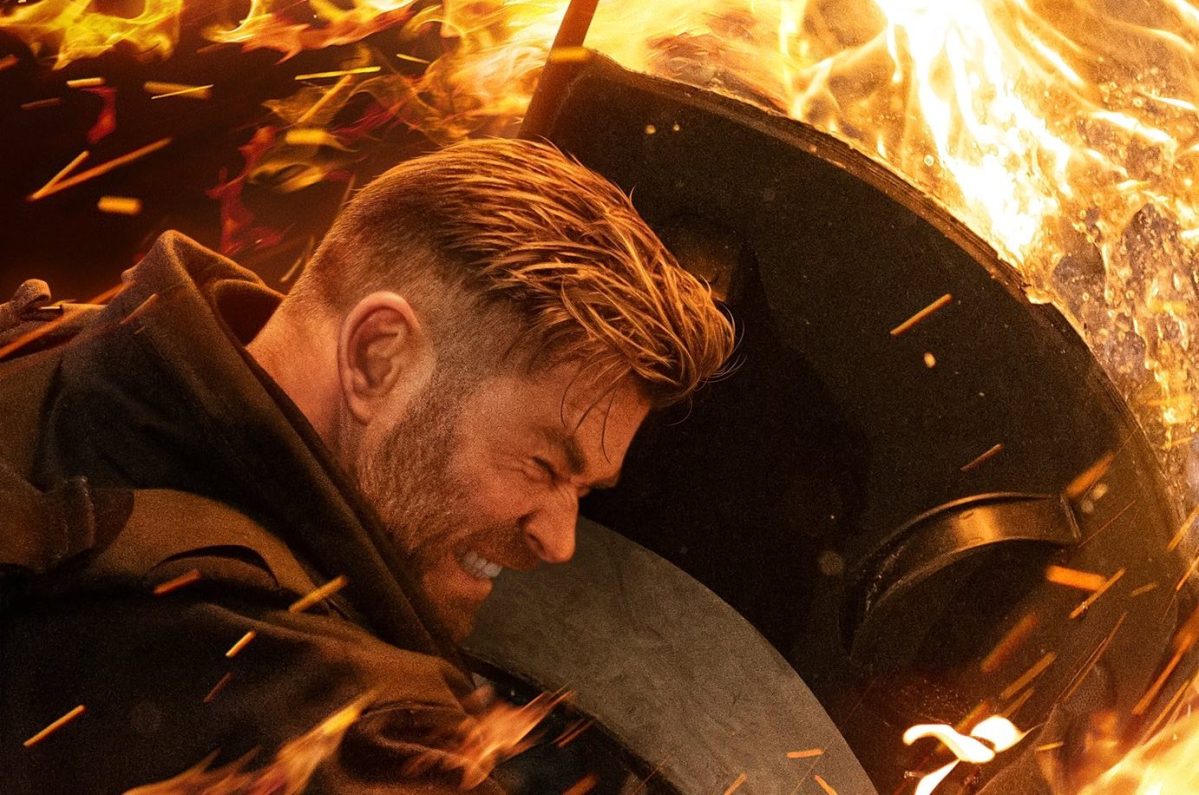Warning: The following article contains spoilers for The Lord of the Rings: The Rings of Power Season 2, Episode 5, “Halls of Stone.”
Pharazôn is officially Númenor’s new head honcho in The Rings of Power Season 2, and the island kingdom will never be the same again. The Escapist caught up with star Trystan Gravelle to chat about Pharazôn’s next moves, why he’s different to J.R.R. Tolkien’s original villain, and more!
[Note: This interview has been edited for clarity.]
In The Rings of Power Season 2, Episode 5, Pharazôn has finally got what he’s been after since Season 1: he’s holding The Sceptre of Númenor—but he’s still not satisfied. Where does that leave his frame of mind going forward?
When you accomplish something, there’s time for reflection. And I think Pharazôn is a philosopher so much more than just chancellor or an old sea captain. He’s all those [things]. But he’s also a philosopher, and philosophers, they reflect. There’s a lot of time for reflection and stuff, and they take that productive boredom if you like, and they try to see where they’re going ahead. Where do I take my people now? And now that he’s in this position, he’s sort of taken upon himself generations of disenchantment with who [the Númenóreans] are, what they are, the ugliness that has sort of grown within them.
I think Númenóreans, as it says in the books, the more disenchanted that they become with their environment, everything around them—they used to have like a sort of symbiotic relationship, and now everything is just there to serve them. The animals; they had an understanding with the animals in the books. And then, of course, as time went by—especially with [tyrannical pre-Rings of Power ruler] Tar-Atanamir and with the King’s Men [movement]—they’re coming to a head there a few generations back, that all of a sudden, the ugliness of them, you know, that they started ageing a little quicker. It’s like being a little bit more weathered, a bit bitter about things.
And so, there’s a there’s an element of “Who are we?” [It’s like] Edward Woodward in [1973 horror movie] The Wicker Man: where do we go from this? Is it time for a change, maybe? Or for us to question and become more cognizant of who we are and why we’re here and maybe question [things]? Who tells us that we can’t go West? You know, why? Why is that? This is ridiculous and patronizing, this as well. [Being told by the Valar thousands of years earlier] “You’re lucky to have the gift of death.” Well, hang on a second. The way you’re wording that is all wrong. It’s patronising. So [Pharazôn’s] very ahead of ahead of the times, very ahead of everybody else, and going, “I’m going to question.”
This is very Truman Show-y, you know, going “I don’t particularly get this.” And some people go, “Of course, you forget maybe what the Elves did for you,” and we’re like, “That’s many generations before; who remembers anything? All we have is the here and now is the present.” Pharazôn’s thinking “Well, I’m not too sure about the way all this is worded and I think a little bit of trickery, maybe at play here, or at least we’re not—we could get a better deal.”

Pharazôn’s reflections on the Undying Lands during this scene will make viewers familiar with The Silmarillion and The Lord of the Rings’ Appendices sit up. Is it fair to say that this is Rings of Power setting the board for Seasons 2 and 3 (and beyond)?
Well, yeah. It’s so typical, as well, of what a man is. We all have within us, in our head, our inner chimp, and I think Pharazôn fancies himself as a bit of a Garry Kasparov or Magnus Carlsen—that he is a good chess player. In fact, he thinks he’s the ultimate chess player. And, maybe Sauron aside, he is.
But also, there’s something that rankles him. That pride, that whole “Well, what’s next? What is out there?” We’re always looking to build, and also as well our relationship with nature is different. [Númenóreans] don’t live forever, so nature for us is something to overcome, and that’s filled with all kinds of hardships and hazards. We don’t have time to watch a tree grow and call it “friend” [like the Elves do]. That would be ridiculous for us. We don’t wait for the ocean to calm down for the next two years; we don’t have that luxury.
So, everything for us is about strife and hardship and to overcome. And we look back then at our conquests with pride, with hubris. And we go, “Right, what’s next then?” Because we’re full of p—s and vinegar, us men, and Pharazôn typifies that.
Aside from teasing the trajectory of Pharazôn’s arc, Episode 5 also gives us another glimpse into the father/son dynamic between him and Kemen in Episode 5, when Pharazôn dangles a prophecy made by Kemen’s mother over his head. What’s your take on their relationship? Does Pharazôn love Kemen, or is he only capable of seeing him as another tool for achieving his ends?
There’s no getting away from the fact that it is an abusive father-son relationship. A normal dad in the street wouldn’t talk to his son like that, but these aren’t normal people. These aren’t normal circumstances. There’s also—you’ve got [an element of] “What are you willing to sacrifice? What are the lengths you are willing to go to for your people?” When you’re in charge of this huge, powerful empire, you have to think that way. You have to toughen up, and you have to know how to play the game. You can’t just talk about your feelings and [take an] “It’s going to be all right” [approach].
There’s got to be an element of stoicism and [saying] “Pull yourself together. We could be at a point, like a crossroads, where you may have to sacrifice something down the line. You’re going to have to do that for your people. So are you ready to bleed for people? Are you ready to engage in the dark arts because it’s all about that result.” All’s fair in love and war; you can’t bring morality into it when lives are at stake, you just go, “Right! We need to get this done.” And that’s why I’m trying to bring Kemen up to speed, and I’m pulling in the old guard of Lord Belzagar, amongst others. And Eärien gets it—Elendil’s daughter, she gets it, and I see that she gets it. And like I’m going, “Right, okay, then this is somebody we can [work with].” And also, whether other benefits can come from that, and maybe I find out what Elendil and everybody else is up to.
So, there’s a very utilitarian streak, I think, with fathers.

You mentioned Pharazôn’s inner circle and him putting them to work. Elsewhere in Episode 5, we see the immediate consequences of his rule, including what effectively amounts to religious persecution of Elendil and the Faithful. Yet Pharazôn himself isn’t the kind of stereotypical chest-thumping demagogue we typically associate with such regimes—or arguably Tolkien’s more overtly belligerent Pharazôn. What inspired you and The Rings of Power creative team to a more restrained take on such a tyrannical character?
He’s had time. That’s a really good question. He’s had time to sort of sit into the role of being a chancellor. So, when we see him in Season 1, we go, “Oh, maybe here’s a man who is a bit of a chess player.” But also, we go, “Speak up if you know the law.” You might [ask yourself], “Was he a sea captain?” This doesn’t look like this great king, right? He just looks like a politician, and that’s what’s beautiful—well, I think beautiful—about the journey that we’re trying to go on [with Pharazôn] is that, as men, we sit into things and there’s the possibility of things running to fat sometimes, and then we rediscover ourselves, our past glories. We have a second wind anxiety as well, that’s interlinked with our own mortality.
For instance, [men think] “How long can I bench 100kg before my intercostals just burst open, or I’m just a wreck in a puddle of my own flesh and p—s on the floor?” So, we see [Pharazôn] and we go “Oh, okay, he’s a chancellor.” Actually, there’s this underlying ambition. We see him. It’s opportunity meets preparation and we see this guy now gradually have this second wind, and saying “Wow, okay, then I’m this. This is how I used to be.” He’s rediscovering his past glories. And what does that do to a person – the ego of a person?
Especially someone with a palantir. Thanks to Episode 5, we know Pharaôn has Míriel’s palantir!
[Grins.]
The Lord of the Rings: The Rings of Power Season 2 is currently streaming on Prime Video, with new episodes dropping Thursdays.














Published: Sep 12, 2024 1:00 PM UTC